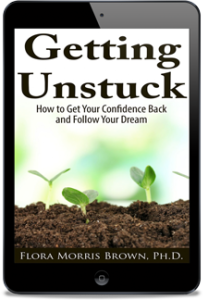
Working dog by meg price on flickr
Weeds are the dreaded enemy of beautiful gardens because they compete with your garden for water and nutrients. Likewise, the weeds in your life must go because they sap your energy and block the intake of positive thoughts and action toward your goals.
What are some of these weeds?
1. Some weeds were born into your life through no fault of your own. They are better known as family. Some family members are wonderfully nurturing and a joy to have in your life. Others are toxic, negative, choking the life out of your goals and positive action. You know the ones I mean. They are the ones who leave a heavy cloud of doubt, depression and sorrow even after they are no longer physically present.
2. Some weeds you brought into your life. These are better known as friends, spouses and children. While we all would love to be able to share our dreams and goals with these people closest to us, it’s not always the wisest thing to do. Be selective about sharing your dreams with those who don’t have your best interest at heart. Even though they may have good intentions, watching you go after your passion makes them afraid for your safety and ashamed of their own lack of action. If you let them project their fears and insecurities on you, your progress toward the life that makes you happy will be slowed if not stopped.
3. Some weeds come into your life based on circumstances and situations. These are better known as neighbors, coworkers, and members of clubs and associations. When you were hired by your company or when you joined a given church or club, folks were already there. Some of these people will share your interests and become close friends and partners. Others may feel threatened by your positive actions and work to sabotage you.
How do you remove these weeds from your life?
Minimizing contact is the first step to reduce exposure to the life-sapping efforts of people out to diminish your worth and devalue your goals. When on a job, for example, you choose carefully the people with whom you will have lunch or take breaks.
There are some, of course, from whom you must sever ties as soon as you are aware of the damage they are causing. When you are in any relationship where you sustain physical, emotional or psychological violence, your life and well being depend on removing yourself as soon as possible to safety.
Preventing future weeds from entering and taking over your beautiful and thriving life is the next step. Now that you can recognize them, you can act quickly to keep them from getting a foothold in your life.
Finally, be on guard against inviting and entertaining your own internal weeds in the form of negative thinking and self-destructive habits.
As you practice more positive thoughts, follow your passion and pursue your goals be prepared for the efforts of the weeds to return. It’s their nature to go where they can get nourishment. Now that you are set on cultivating happiness, you must absolutely deny their presence in your life.
But don’t worry about them, they are a hardy and determined breed. They will soon find new, unsuspecting hosts nearby.




Recent Comments